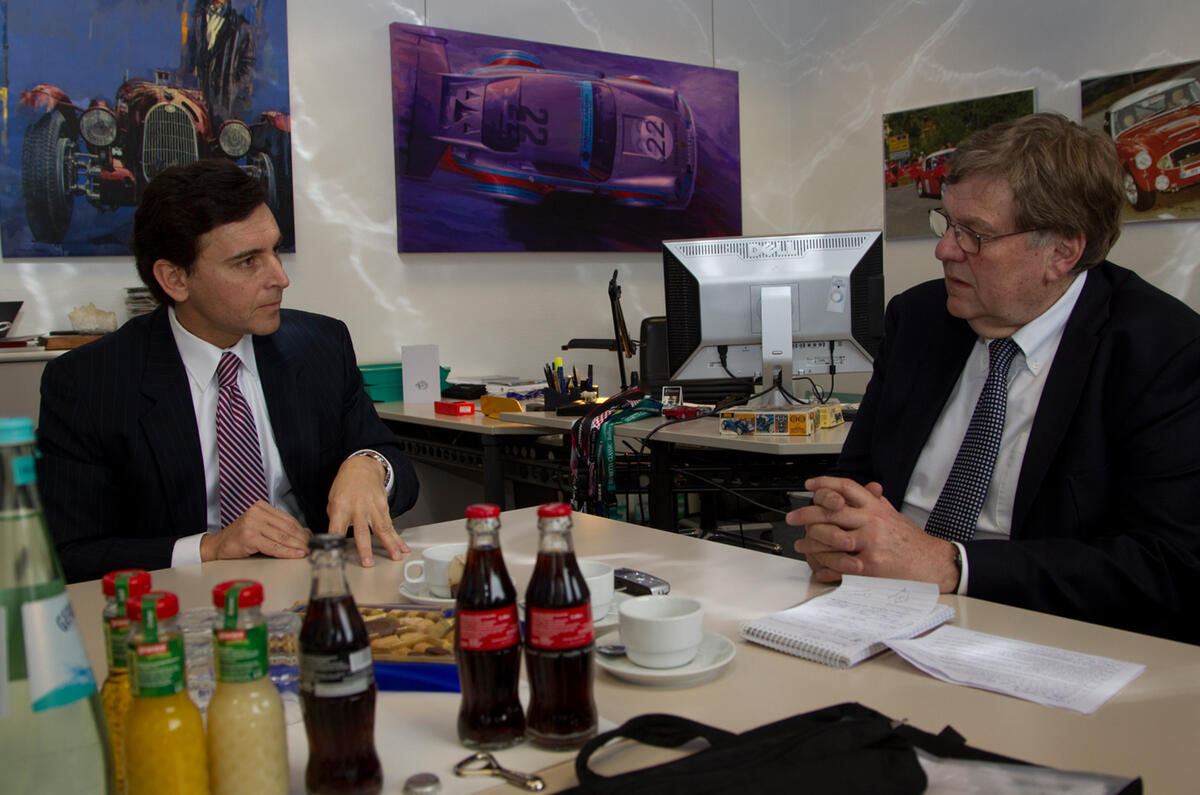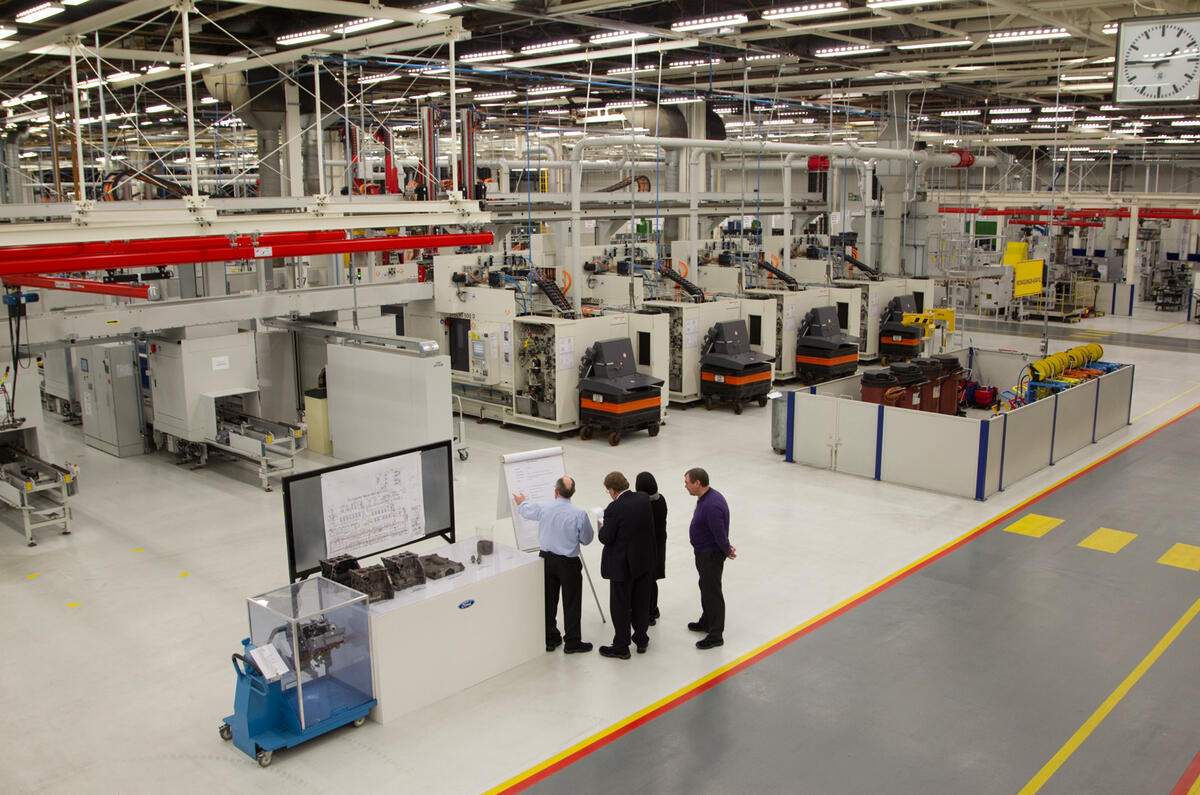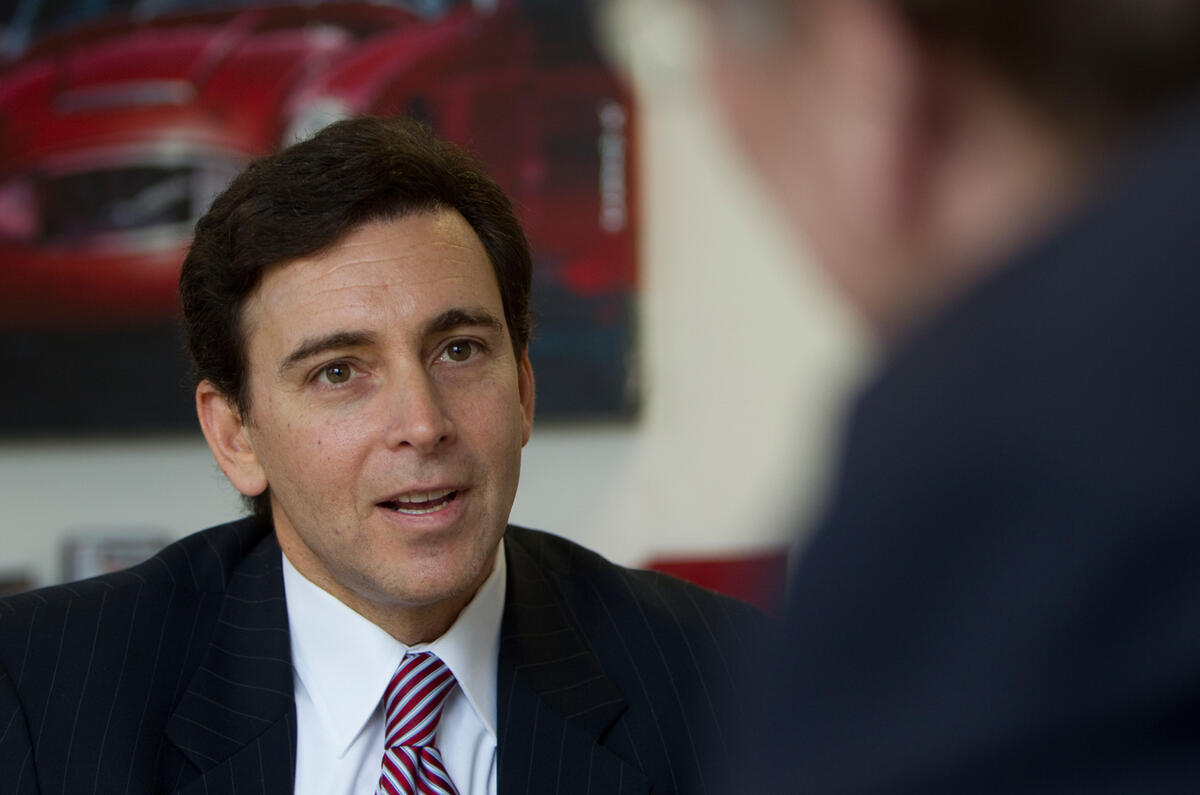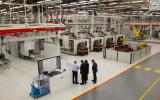The question that hangs over Mark Fields, 52-year-old supremo-elect of Ford, is how an apparently nice, uncomplicated bloke could have survived the shark-infested pool that is the management of a mammoth US car corporation to establish himself as the natural replacement for Ford’s already-legendary saviour and current CEO, Alan Mulally.
It’s the question hanging on every industry-watcher’s lips. Whether in choreographed car presentations in Detroit, or at today’s meeting in an unpretentious office inside Ford’s European Design Centre in Cologne, Fields comes across as Mr Nice Guy: instinctively friendly, handsome, well dressed, down-to-earth, lucid, plausible and grounded.
But late last year he was appointed chief operating officer and given day-to-day charge of the entire Ford empire, leaving Mulally to concentrate on longer-term planning and contemplate retirement at the end of next year. The big job, according to Detroit’s grizzled pundits, is now his to lose.
The relaxed approachability is no act. You learn that within a few minutes. But it also suits the new mood at Ford. Big-time execs might once have enjoyed portraying themselves as grandees, but that’s not fashionable any more. Mulally (famously described as the world’s best-known boy scout) has set records for friendliness since he arrived at the company in 2006 with a wide smile and a deceptively simple new plan called One Ford.
Mind you, good-looking, hard-working car execs in their early 50s were never hard to find at Ford. Quite a few fitting that description went down the road when the company’s North American business – led by Fields – had its infamous ‘car crash’ in 2008 and sacked 40 per cent of its white-collar workers. So what makes Fields special?
An early surprise in our chat is that he looks faintly embarrassed about confronting this much-asked question. “I feel a little uncomfortable describing myself,” he begins, rather tentatively. “Let me tell you about my mother…”
His personal secrets are hardly secrets at all. They’re all about determination, planning and persistence; old-fashioned stuff learned as part of a happy childhood in New Jersey, where his first part-time college job was installing electric typewriters for IBM (“We had to bolt them to the desks”).
His main difference from the rest of us seems to be that the persistence came in a larger package. “I’m very determined,” he says, shrugging off the self-consciousness, “and I’m very tenacious. I hate accepting defeat; I think that comes from being the youngest of three brothers. You have to stand up for yourself or they’ll kick the heck out of you.” Only he doesn’t say “heck”.
















Join the debate
Add your comment
Ford are a Massive loss
Ford are a Massive loss making Operation in Europe, and they have little or no market in Asia / Latin America / Africa. Hence, I don't see any turn around, really, apart from in the USA. Perhaps some Maketing / Global branding, will help.
Vs VW & Toyota...?
Glad to hear he's a nice bloke but as a car buyer this makes no difference to me. What I want to hear is plans for how Ford is going to offer us more choice in future, i.e. how it will secure its financial future and then deliver interesting new models.
OK, I'm being selfish but what I think some of us would have found interesting in addition to a description of Mr Fields' qualities would have been some analysis of Ford's strategy compared to, for example, VW and Toyota.
The One Ford plan has been about reducing Ford's range of models on a global basis to cut costs and deliver economies of scale. This is in marked contrast to both VW and Toyota who continue to develop location-specific cars. Who's going to succeed in the long run?
On a totally superficial level it feels like car journalism in the UK has been totally dominated by new product launches by the German companies in the last five years. I would love to see Ford & other non-German car makers launching more cars in Europe. Products like the new Fiesta ST only intensify this desire! The continuation of the One Ford plan doesn't suggest this will actually materialise.
Ford - The company that thinks "Out of the Box"
Steve
Mark Fields sounds as though he has great charisma - a much needed quality for a leader of one of the world's top motor manufacturers.
However, my favourite of all time was Bernd Pischetsrieder, a great manager and a real 'Car Guy' & Chairman of 3 motor manufacturers. (BMW, Volkswagen & Scania). What enamoured me to Mr. Pischetsrieder was his burning desire to create cars of character, not simply products of efficient German engineering.
Wishing Mark Fields all success in increasing the public perception of a Brand jumping up the quality ladder.